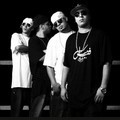The camera holds no more secrets for him, but society will always have its shadowy areas that image and text never fully illuminate. This is the primary vocation of Jawad Rhalib, who makes his cinematic expression a constant questioning of the issues that are so dear to him, as an observer and actor in his environment.
Since the 19th century, the French writer and critic Jules Janin already believed that «journalism leads to everything, provided you get out of it». This best defines the journey of the Belgian-Moroccan filmmaker, who first honed his audiovisual skills as a documentarian, reporter, and presenter of the show «Ecologia» for Al Aoula in Morocco, and also as a fiction director.
Sensitive to cinematic language, as well as to local socioeconomic and environmental realities, he finds in writing for the big screen a better means of expression. It is on this occasion that Jawad Rhalib participated in the Marrakech International Film Festival (FIFM 2024). During this 21st edition held from November 29 to December 7 in the ochre city, Jawad Rhalib presented his new documentary, «Puisque je suis née» (Since I Was Born).
25 years of documentary in Morocco and beyond
Supported by 2M and RTBF, this latest feature-length documentary by Jawad Rhalib follows, over the four seasons of a year, the journey of Zahia, a 13-year-old girl. In her remote village, she dreams of continuing her studies beyond primary school to become a teacher, influenced by her own teacher, who is also seen on screen.
In «Since I Was Born», the young schoolgirl faces both social and climatic constraints. For economic and infrastructural reasons, many parents in her village withdraw their daughters from school once primary education is completed. They then take care of the family home or other siblings, and early marriage becomes inevitable.
«In the film, people also say that young girls suffer domestic violence. We follow this journey without knowing what will happen in the end. Nonetheless, Zahia tries to lead a gentle revolution with her father, to convince him to let her stay in school», the director explains to us, the day after the screening of his feature film.
Born in Meknes where he obtained his literary baccalaureate, Jawad Rhalib is well aware of the issues related to the situation of young girls, especially in rural areas and in regions most affected by climate change. During his years as a reporter, his many travels across different regions of the country informed him of the extent of the phenomenon, beyond statistics that only capture numbers.

«Just before this film, I made a feature-length documentary called ‘Fadma – Even Ants Have Wings,’ where I saw this in the regions of the High Atlas as well. My work on the show ‘Ecologia’ for Al Aoula over the years also allowed me to discover Morocco from many angles», Jawad Rhalib tells us.
After studying at the Catholic University of Louvain-la-Neuve in Belgium, Jawad Rhalib makes regular trips back and forth to Morocco. He collaborates with production companies and explores everything: documentaries, fiction, television programs... All this further opens his eyes to the ills of his society: the situation of women and girls, nature, and the environment.
«These realities exist, unfortunately. They will persist as long as there is no political will and awareness of the importance of education and culture as cornerstones of our development, and our human development. A people that is not cultured is destined to disappear».
An education through cinematic culture
It is also thanks to cultural practice that horizons opened up for Jawad Rhalib. During the 1980s, he regularly attended the Cinema Empire in Meknes, where the free film club introduced him to major auteur films from around the world: France, Brazil, Italy... He was deeply influenced by the works of François Truffaut, and Federico Fellini, among others.
As was the tradition of film clubs in Morocco during the 1970s and 1980s, these sessions were not only an opportunity for cinephiles to discover creations from other territories, but they also served as a meeting point for exchanges and debates. Jawad Rhalib thus developed a solid cinematic culture, rooted in reality and society. Over time, he already felt «the need to express things» and to do so using a camera.
By the late 1990s, Jawad Rhalib stood out with the documentary «In the Name of Coca», through which Evo Morales, president of Bolivia from 2006 to 2019, reveals the reality of local coca farmers (cocaleros) in the Chapare region. In 2000, this investigative work earned the director the audience award at the International Festival of Grand Reporting and Current Affairs Documentary (FIGRA). The more he is confronted with unspoken truths, the more determined he is to express himself through images.
In 2006, Jawad Rhalib directed «El Ejido, the Law of Profit», awarded best documentary at Fespaco 2008. He then released «The Damned of the Sea» (2013), «The Song of the Turtles» (2016), «The Swallows of Love» (2018), and «When Arabs Danced» (2020), also awarded at Fespaco and in several festivals, before directing «The Pink Revolution». Meanwhile, he ventured into fiction starting in 2014 with «7 Rue de la Folie», then «Insoumise», jury prize at FIFM 2015.
In Morocco, his travels made him realize that economic themes often have social impacts that need to be addressed. «Since I don’t know how to keep quiet, especially about ecology, my remarks were not always positively received. So I wanted to do something where I would speak to everyone, without anyone telling me not to meddle in what doesn’t concern me», he confides to us.
By launching his show on the national first channel, Jawad Rhalib faced what he calls «censorship». «Once the editing was finished, we had to go back over it and it was getting harder and harder. From there, I wanted not to limit myself regarding what I wanted to say», he recalls.
When journalism and cinema converge towards fiction
Combining the journalistic approach with the creative process, Jawad Rhalib now feels he is in his rightful place. As a filmmaker, he has the freedom to navigate between the real and the imaginary, to find the right words and images that match his thirst for expression. But with each project he undertakes, he sets himself the same standards of rigor.
«Whether for fiction or documentary, you always have to research, investigate, know how to ask the right questions, check several times and with several sources», Jawad Rhalib tells us, who says he adopted the same approach, ahead of his latest feature film. Titled «Amal, a Free Spirit», for its release in France, the opus is a great success.
«Amal» is the story of a high school teacher (Lubna Azabal) in Brussels. She encourages her students to express themselves freely, especially on issues of gender and sexual orientation of some of their classmates. By deciding to teach the Arabic poetry of Abu Nuwas, she faces a backlash, to the point of feeling threatened. For Jawad Rhalib, tackling societal issues rooted this time in European realities, in a context of identity tensions, was a way for him to test the balancing act.
«It’s a very sensitive creation. It was necessary to be very precise, not to leave room for criticism or a breach for those criticized to react, hence the investigation and documentation. That’s also journalism».
The director insists again on the importance of education and culture, which he highlights in both documentary and fiction, especially in this film. «I grew up with an open-mindedness that educated me to accept others, to have an evident conception of the right to difference. That’s what I show, in ‘Amal’, through this Arab poet whom I studied myself, in public school in Morocco», he tells us.
 Lubna Azabal in the role of Amal / Ph. K-Films
Lubna Azabal in the role of Amal / Ph. K-Films
«Back then, we had Islamic education classes, Arabic literature courses including the poetry of Abu Nuwas, philosophy... In my opinion, it’s the very example of the principle of Din wa Dunia», the filmmaker emphasizes again.
Today, journalistic work has led Jawad Rhalib to cinema, which in turn has initiated him to explore even more themes related to human rights. Now, the director has made it his field of choice, as long as there are still questions he deems necessary to address. «I’m trying to get out of it, I assure you», he jokes.





 chargement...
chargement...











